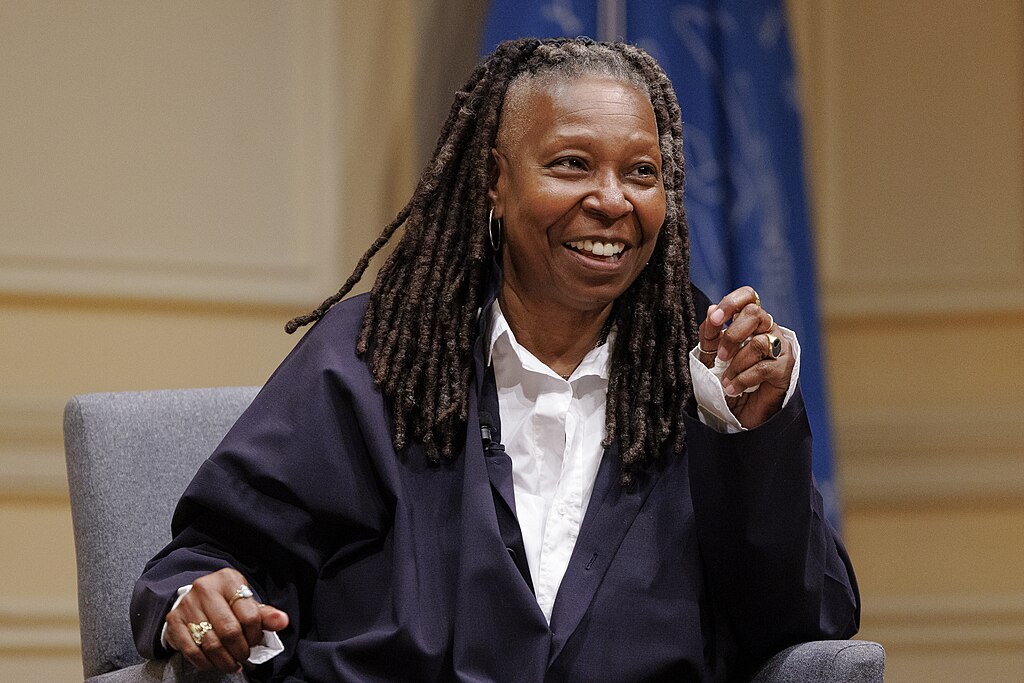Whoopi Goldberg, co-host of The View, has accused Robert F. Kennedy Jr., President-elect Donald Trump’s nominee for Health and Human Services (HHS) secretary, of “fat shaming” in his comments about creating a healthier America. The controversy erupted after Kennedy, known for his advocacy on health and environmental issues, emphasized tackling obesity as part of his vision for public health reform.
During an episode of The View, Goldberg expressed outrage at Kennedy’s remarks, arguing that his focus on obesity stigmatizes individuals and ignores systemic health issues. “It’s one thing to promote healthy living,” Goldberg said, “but it’s another to make people feel less than because of their weight.”
RFK Jr.’s Push for Public Health Reform Sparks Backlash
Kennedy, a long-time proponent of personal health and wellness, has framed obesity as a key public health challenge. Speaking at a recent event, he highlighted the rising costs associated with obesity-related illnesses and stressed the importance of promoting healthier lifestyles. However, critics argue that his rhetoric perpetuates harmful stereotypes and places undue blame on individuals.
Goldberg’s remarks reflect broader concerns among advocacy groups, who fear that Kennedy’s approach could overshadow systemic factors such as food deserts, healthcare access, and socioeconomic disparities. While some have praised his call to action, others see it as a missed opportunity to address deeper issues in the nation’s healthcare system.
Social Media Reactions Intensify Debate
The clash between Goldberg and Kennedy has ignited a firestorm on social media, with users taking sides in the debate over health reform and body image:
- @HealthForAll2024: “RFK Jr.’s focus on obesity is important, but we need solutions that uplift people, not shame them.”
- @PatriotProud99: “Whoopi is overreacting. Promoting a healthier America isn’t fat shaming—it’s about saving lives!”
- @BodyPositivityNow: “Goldberg is right. Public health reform must address systemic issues, not blame individuals for their weight.”
- @IndependentThinker88: “RFK Jr. wants a healthier America. Let’s focus on the message, not misconstrue it for controversy.”
- @WellnessAdvocate: “Goldberg’s comments are a distraction. Obesity is a crisis, and RFK Jr. is addressing the root causes.”
- @FreedomToChoose: “Healthy choices should be encouraged, but Kennedy’s tone matters. Words have power, and they can hurt.”
A Broader Debate on Health and Policy
The controversy highlights a broader cultural debate about health, body image, and public policy. Advocates for body positivity argue that framing obesity as a personal failure ignores structural issues, such as inadequate access to nutritious food and healthcare disparities. At the same time, supporters of Kennedy’s health initiative contend that addressing obesity is essential for reducing healthcare costs and improving overall well-being.
As Kennedy awaits Senate confirmation, his statements are likely to face further scrutiny. The debate over his approach underscores the challenges of balancing personal responsibility with systemic reform in public health policymaking.
For Goldberg and her supporters, Kennedy’s comments represent a step backward in fostering inclusivity. For his advocates, they signal a commitment to confronting one of America’s most pressing health crises.



 U.S. Deploys Tomahawks, B-2 Bombers, F-35 Jets and AI Tools in Operation Epic Fury Against Iran
U.S. Deploys Tomahawks, B-2 Bombers, F-35 Jets and AI Tools in Operation Epic Fury Against Iran  Trump Warns Iran as Gulf Conflict Disrupts Oil Markets and Global Trade
Trump Warns Iran as Gulf Conflict Disrupts Oil Markets and Global Trade  Macron Urges Emergency UN Security Council Meeting as US-Israel Strikes on Iran Escalate Middle East Tensions
Macron Urges Emergency UN Security Council Meeting as US-Israel Strikes on Iran Escalate Middle East Tensions  Germany and China Reaffirm Open Trade and Strategic Partnership in Landmark Beijing Visit
Germany and China Reaffirm Open Trade and Strategic Partnership in Landmark Beijing Visit  Zelenskiy Urges Change in Iran After U.S. and Israeli Strikes, Cites Drone Support for Russia
Zelenskiy Urges Change in Iran After U.S. and Israeli Strikes, Cites Drone Support for Russia  UK Accepts U.S. Request to Use British Bases for Defensive Strikes on Iranian Missiles
UK Accepts U.S. Request to Use British Bases for Defensive Strikes on Iranian Missiles  Israel Launches Fresh Strikes on Iran After Death of Supreme Leader Ayatollah Khamenei
Israel Launches Fresh Strikes on Iran After Death of Supreme Leader Ayatollah Khamenei  Netanyahu Suggests Iran’s Supreme Leader Khamenei May Have Been Killed in Israeli-U.S. Strikes
Netanyahu Suggests Iran’s Supreme Leader Khamenei May Have Been Killed in Israeli-U.S. Strikes  Trump Launches Operation Epic Fury: U.S. Strikes on Iran Mark High-Risk Shift in Middle East
Trump Launches Operation Epic Fury: U.S. Strikes on Iran Mark High-Risk Shift in Middle East  Australia Rules Out Military Involvement in Iran Conflict as Middle East Tensions Escalate
Australia Rules Out Military Involvement in Iran Conflict as Middle East Tensions Escalate  Trump Orders Federal Agencies to Halt Use of Anthropic AI Technology
Trump Orders Federal Agencies to Halt Use of Anthropic AI Technology  Argentina Senate Approves Bill to Lower Age of Criminal Responsibility to 14
Argentina Senate Approves Bill to Lower Age of Criminal Responsibility to 14  Middle East Conflict Escalates After Khamenei’s Death as U.S., Israel and Iran Exchange Strikes
Middle East Conflict Escalates After Khamenei’s Death as U.S., Israel and Iran Exchange Strikes  U.S.-Israel Strike on Iran Escalates Middle East Conflict, Trump Claims Khamenei Killed
U.S.-Israel Strike on Iran Escalates Middle East Conflict, Trump Claims Khamenei Killed  Iran Supreme Leader Ayatollah Ali Khamenei Killed in Israeli, U.S. Strikes: Reuters
Iran Supreme Leader Ayatollah Ali Khamenei Killed in Israeli, U.S. Strikes: Reuters  EU Urges Maximum Restraint in Iran Conflict Amid Fears of Regional Escalation and Oil Supply Disruption
EU Urges Maximum Restraint in Iran Conflict Amid Fears of Regional Escalation and Oil Supply Disruption  Israel Declares State of Emergency as Iran Launches Missile Attacks
Israel Declares State of Emergency as Iran Launches Missile Attacks 































